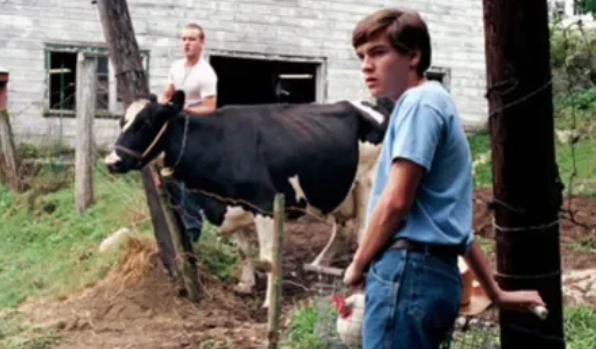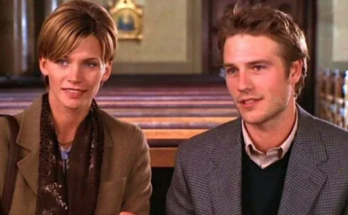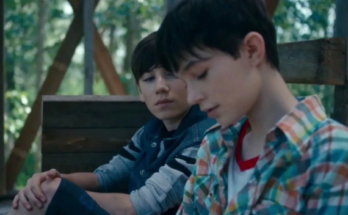𝐓𝐡𝐞 𝐌𝐮𝐝𝐠𝐞 𝐁𝐨𝐲 (𝟐𝟎𝟎𝟑) Full Movie
The Mudge Boy (2003) is a haunting and introspective coming-of-age drama that explores themes of grief, sexuality, family dynamics, and self-identity. Directed by Gary Burns, the film offers a raw and emotionally charged look at the life of Duncan Mudge, a young boy struggling to reconcile his desires and the expectations of a world that seems indifferent to his pain.
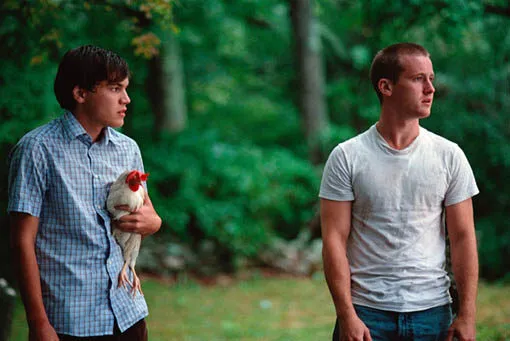
Plot Summary: Duncan Mudge (played by the talented Emile Hirsch) is a troubled, introverted teenager living in a small town, raised by his distant, emotionally cold father, Percy (played by Richard Jenkins). After the death of his mother, Duncan has become increasingly isolated, retreating into a quiet, almost bizarre existence marked by his eccentric behavior and deep emotional scars. His only outlet seems to be his obsessive care for a pet rabbit and his seemingly unnatural connection to the world around him.
The plot kicks into motion when Duncan’s repressed feelings of isolation and confusion start to manifest in his relationships with those around him. His father’s inability to express affection leaves Duncan yearning for connection and acceptance. He befriends two local teenagers—Perry (played by Timothy Olyphant) and Bev (played by Piper Perabo)—both of whom provide a stark contrast to his own withdrawn, self-contained existence. Perry and Bev, whose personal issues mirror Duncan’s in different ways, become unwitting catalysts for his emotional and sexual awakening, though their relationship with him is far from straightforward.
As Duncan grows more intrigued by his complex feelings for Bev, and his growing bond with Perry deepens, he is forced to confront his inner turmoil, long-buried secrets, and the harsh realities of his isolated life. The film culminates in a moment of painful self-realization for Duncan, as he begins to understand the intricate, often painful process of coming to terms with one’s identity and desires.

Artistic Analysis: The Mudge Boy is a cinematic exploration of the pain and confusion that often accompanies adolescence, particularly when dealing with loss and a lack of emotional support. The film’s subdued color palette—muted grays, browns, and desaturated hues—mirrors the internal darkness Duncan experiences, creating a somber, oppressive atmosphere that perfectly reflects his emotional state. The minimalistic set designs and sparse locations amplify the feeling of isolation and distance between Duncan and the world around him, enhancing the film’s themes of loneliness and alienation.
The pacing of the film is slow and deliberate, allowing the audience to sit with Duncan’s internal struggles, watching him as he processes the complexities of his emotions. The quiet moments of introspection are juxtaposed against the rawness of his interactions with Perry and Bev, creating a balance of subtlety and tension that draws the audience into the depths of Duncan’s psyche. The cinematography is striking, with moments of visual beauty paired with uncomfortable close-ups, forcing viewers to engage with Duncan’s inner world.

Performances: Emile Hirsch’s portrayal of Duncan is mesmerizing and deeply nuanced. Hirsch delivers a performance that captures the complexities of a young man trying to navigate grief, sexual identity, and the pressures of a society that doesn’t offer him the understanding he craves. His subtle yet powerful performance conveys the isolation and vulnerability Duncan feels, while also allowing for moments of tenderness and defiance.
Richard Jenkins as Duncan’s father, Percy, plays a cold, emotionally distant figure whose inability to provide the love and support Duncan desperately needs is heartbreaking. His performance is both restrained and painful, offering a glimpse into the emotional distance between father and son and the consequences of a lack of communication in a family struggling with grief.
Timothy Olyphant and Piper Perabo also deliver standout performances as Perry and Bev, two characters who bring a sense of freedom and rebellion into Duncan’s stifled world. Perry is charismatic yet troubled, and Olyphant’s portrayal of him is captivating, balancing the character’s desire for attention with a sense of vulnerability. Perabo’s portrayal of Bev adds a layer of complexity to the film’s emotional landscape, providing Duncan with a female character who both challenges and confuses him.
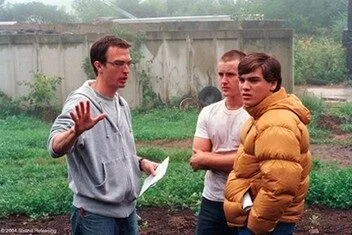
Emotion: The emotional heart of The Mudge Boy lies in Duncan’s journey of self-discovery and his attempts to connect with those around him, all while grappling with feelings of abandonment and confusion. The film is unflinching in its portrayal of Duncan’s emotional and sexual awakening, offering a raw depiction of the complexities of desire, rejection, and longing. Duncan’s internal struggle with his identity—his inability to express his needs, his love, and his grief—creates a deep emotional current that flows throughout the film.
The film also explores the broader theme of parental failure and the impact it has on a child’s development. Percy’s emotional neglect and inability to connect with Duncan result in a child who is not only struggling with grief but also questioning his place in the world. The sense of isolation that Duncan feels is made all the more poignant by his father’s cold indifference, and this dynamic serves as the catalyst for Duncan’s search for connection and identity.

Final Thoughts: The Mudge Boy is a haunting, poignant film that delves deep into the emotional complexities of adolescence, family dynamics, and identity. Through Duncan’s painful journey, the film explores themes of loss, desire, and the struggle for acceptance in a world that often fails to understand those who are different. With powerful performances, stunning cinematography, and an evocative soundtrack, The Mudge Boy leaves a lasting impact on the viewer, making it a film that resonates long after it ends.
While the film’s slow pace and somber tone may not be for everyone, those who appreciate deeply personal, emotionally driven stories will find The Mudge Boy to be a beautifully crafted exploration of the fragility of human connection and the painful, yet ultimately redemptive, process of growing up.
